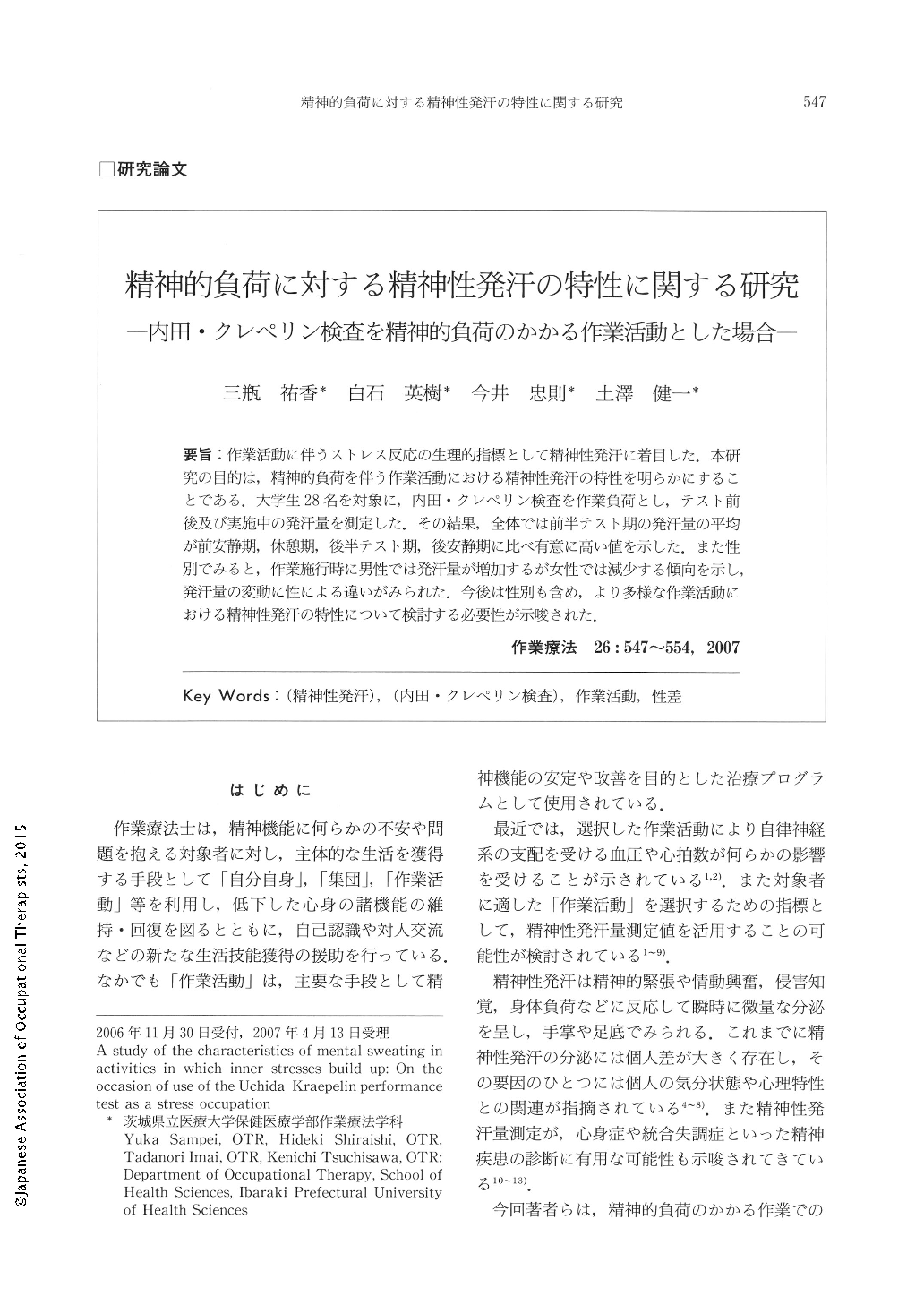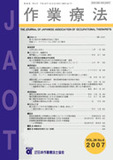Japanese
English
- 販売していません
- Abstract 文献概要
- 1ページ目 Look Inside
- 参考文献 Reference
要旨:作業活動に伴うストレス反応の生理的指標として精神性発汗に着目した.本研究の目的は,精神的負荷を伴う作業活動における精神性発汗の特性を明らかにすることである.大学生28名を対象に,内田・クレペリン検査を作業負荷とし,テスト前後及び実施中の発汗量を測定した.その結果,全体では前半テスト期の発汗量の平均が前安静期,休憩期,後半テスト期,後安静期に比べ有意に高い値を示した.また性別でみると,作業施行時に男性では発汗量が増加するが女性では減少する傾向を示し,発汗量の変動に性による違いがみられた.今後は性別も含め,より多様な作業活動における精神性発汗の特性について検討する必要性が示唆された.
Purpose: The purpose of this study was to investigate the characteristics of mental sweating as a physiological index in the activities in which inner stresses build up.
Methods: This study included 28 healthy volunteers. We measured the change of mental sweating in the Uchida-Kraepelin performance test using a perspiration meter SKD-1000. We had the date of mental sweating following periods: 1)the previous rest time; 2) the first 15 minutes of test time; 3) rest time; 4) second 15 minutes test time; and 5) rest time after finishing.
Results: The results showed that the value of mental sweating in the first 15 minutes of the test was significantly higher compared with other performance times. And after the first 15 minutes, the value of mental sweating showed a tendency to decrease. In addition, there was a difference between males and females in mental sweating. The highest value of mental sweating in males was observed in the first 15 minutes of the test. However, females showed the highest value of mental sweating at rest time.
Conclusion: The results of our study suggested that therapists should consider the sex difference when activity for patients, such as occupational therapy, is used as intervention.

Copyright © 2007, Japanese Association of Occupational Therapists. All rights reserved.


